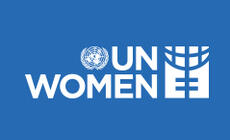Institution Background
UN Women is a United Nations entity dedicated to promoting gender equality and empowering women globally. Established in 2010, it consolidates and builds on the work of several UN bodies to accelerate progress toward gender equality. UN Women’s Strategic Plan articulates how UN Women aims to mobilize urgent and sustained action to achieve gender equality and supports the realization of the 2030 Agenda for Sustainable Development.
Central to its approach is its unique triple mandate, which encompasses normative support, UN system coordination, and operational activities. Through this mandate, UN Women shapes
global standards on gender equality, leads and coordinates the UN's broader gender-related efforts, and implements on-the-ground initiatives that directly impact the lives of women and girls. UN Women collaborates with UN Member States to set global standards and supports governments and civil society in implementing laws, policies, and programs that ensure these standards benefit women and girls worldwide.
UN Women’s work focuses on key strategic priorities: Governance and Leadership, (ensuring women lead, participate in, and benefit equally from governance systems), Economic Empowerment (promoting income security, decent work, and economic autonomy for women), Ending Violence against Women and girls (ensuring all women and girls live free from violence); and Women, peace and security, humanitarian action and disaster risk reduction (enhancing women's influence in building sustainable peace and resilience, particularly in the context of disaster prevention, conflict resolution, and humanitarian actions).
Evaluation Function
UN Women regularly evaluates its work to enhance accountability, inform decision-making, and contribute to learning on gender equality. Independent Evaluation Service (IES) of the Independent Evaluation, Audit and Investigation Services (IEAIS) provides critical evidence to ensure UN Women remains relevant, effective, and impactful in the lives of the women and girls it serves. IES reports directly to the UN Women Executive Director and presents Annual Reports on Evaluation to the Executive Board.
The UN Women evaluation policy governs its independent evaluation function and applies to all initiatives and funds administered by the organization. While aligned with the United Nations Evaluation Group (UNEG) norms and standards, it is specifically tailored to UN Women’s mandate, focusing on gender equality and women's rights. The policy supports coordination, coherence, and accountability within the UN system regarding gender equality and the empowerment of women.
The UN Women Evaluation Strategy 2022–2025 outlines four strategic areas: 1. Implementing strategic corporate, regional and country portfolio evaluations; 2. Implementing effective decentralized evaluation systems; 3. Supporting United Nations (UN) and national stakeholder partnerships on gender-responsive evaluations; and 4. Strengthening evaluation use.
IES leads corporate and strategic evaluations, often with external evaluators, assessing effectiveness and organizational performance. Decentralized evaluations are managed by program offices, quality-assured through the Global Evaluation Reports Assessment and Analysis System (GERAAS), and presented annually to the Executive Board.
All evaluations are publicly accessible via the Global Accountability and Tracking of Evaluation (GATE) system. Additionally, IES develops guidelines and methodologies to integrate gender equality and human rights into evaluations and collaborates with UNEG to promote system-wide coordination for gender-responsive evaluations, ensuring that UN Women and its partners remain strong advocates for gender equality.

